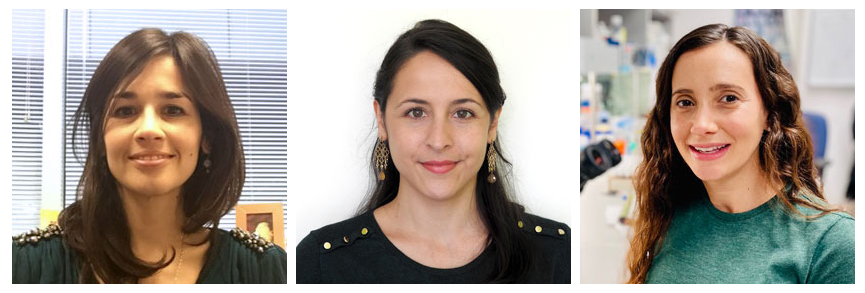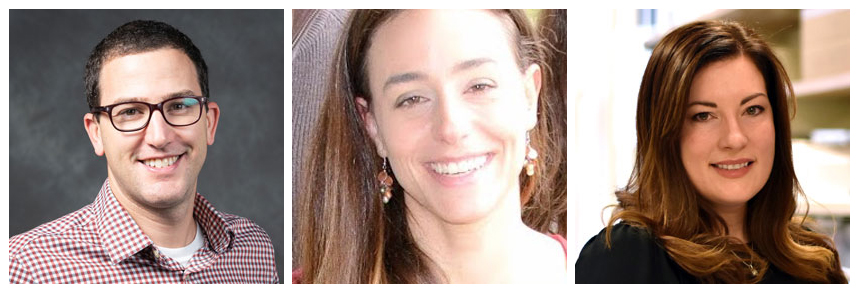
April 21, 2021
Six grant recipients received up to $15,000 each for studies on the variability of cellular aging in humans
Six grant recipients received up to $15,000 each for studies on the variability of cellular aging in humans
LA JOLLA—The San Diego Nathan Shock Center (SD-NSC) of Excellence in the Basic Biology of Aging, a consortium between the Salk Institute for Biological Studies, Sanford Burnham Prebys (SBP) Medical Discovery Institute and the University of California San Diego, has announced the first class of pilot grant awardees at the center’s inaugural training workshop. Six recipients, each from a different institution, will receive up to $15,000 to pursue research that advances our understanding of how humans age, with the ultimate goal of extending the number of years of healthy, disease-free life (i.e., health span).
Aging is the most significant risk factor for human disease. Individuals age at different rates, and even specific cells and tissues within a person age differently. This depends on intrinsic properties, including where cells are in the body, and extrinsic factors, like environmental exposures to toxins and pathogens. Yet, scientists do not fully understand this variability (“heterogeneity”) and how it contributes to overall human aging, risk for disease or therapeutic responses.

“These exciting research projects are a crucial first step to deepen our understanding of aging heterogeneity, which could pave the way for better interventions to improve human health span,” says Salk Professor Gerald Shadel, who directs the SD-NSC. “We’re thrilled to bring new researchers into the biology of aging field through support from our center and look forward to seeing their progress toward understanding the heterogeneity of aging.”
The six pilot grant awardees are: Ana Chucair-Elliot, staff scientist at Oklahoma Medical Research Foundation, “A novel inducible cell-specific mouse model for chromatin accessibility and transcriptomic studies of retina Müller glia in age-related macular degeneration”; Vanessa Delcroix, postdoctoral researcher at The Scripps Research Institute, “A single-cell atlas of the aging lacrimal gland to understand the mechanisms underlying age-associated dry eye disease”; Maria Clara Guida, staff scientist at Sanford Burnham Prebys Medical Discovery Institute, “Investigating the epigenetic drift of aging hearts using Drosophila”; Adam Konopka, assistant professor at the University of Wisconsin-Madison, “The metabolic-epigenomic network of Metformin and exercise”; Lara Labarta Bajo, postdoctoral fellow at the Salk Institute, “Astrocyte plasticity in the aging brain”; and Maria Mihaylova, assistant professor at The Ohio State University, “Characterizing age-dependent changes in the mammalian colon.”

Grant recipients will receive subsidized access to the SD-NSC Research Resource Cores (shared research facilities), necessary reagents/supplies, and access to training workshops offered by the center and its core research facilities. They will also be paired with an established aging research investigator, who will provide guidance to ensure project success.
The awardees were named at SD-NSC’s first training workshop, held on March 26, 2021. The virtual event drew 91 attendees and featured a keynote presentation from Darren Baker of the Mayo Clinic, as well as introductions to the Center’s three Research Cores: the Heterogeneity of Aging Core, the Integrative Models of Aging core, and the Human Cell Models of Aging core. It was also announced at the workshop that Associate Professor Alessandra Sacco at SBP will join the SD-NSC, replacing SBP Professor Malene Hansen as director of the Research Development Core. Video presentations given at the workshop are publicly available online here.
Research reported in this announcement was supported by the National Institute On Aging of the National Institutes of Health under Award Number P30AG068635. The content is solely the responsibility of the authors and does not necessarily represent the official views of the National Institutes of Health.
Office of Communications
Tel: (858) 453-4100
press@salk.edu
Unlocking the secrets of life itself is the driving force behind the Salk Institute. Our team of world-class, award-winning scientists pushes the boundaries of knowledge in areas such as neuroscience, cancer research, aging, immunobiology, plant biology, computational biology and more. Founded by Jonas Salk, developer of the first safe and effective polio vaccine, the Institute is an independent, nonprofit research organization and architectural landmark: small by choice, intimate by nature, and fearless in the face of any challenge.